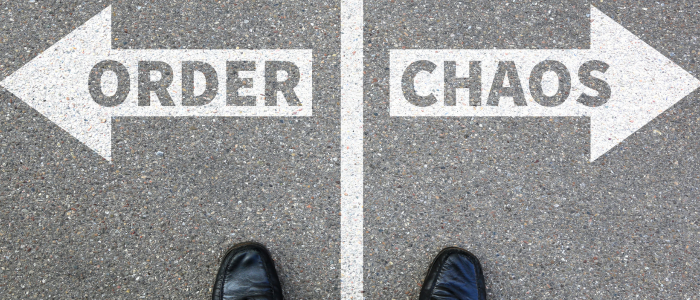Top
Long Reads | Opinion Piece | Global Health
Trump Withdraws The U.S. from The WHO in A ‘Momentous Decision’. We Ask - What Now?
The U.S. withdrawal from the World Health Organization marks a pivotal moment in global health governance, raising critical questions about the future of international collaboration, pandemic preparedness, and the shifting balance of power on the world stage. But is it all bad? We take a closer look.
Time to read: 08:18
Time to listen:12:56


Linda Ravenhill
Western Cape, 21 January 2025, 07:30 GMT+2
Last night, President Donald Trump signed an executive order officially withdrawing the United States from the World Health Organization (WHO). Calling it a “big one,” Trump has brought an end to the country’s decades-long relationship with the UN health agency.
The move, while not entirely unexpected, carries significant implications for the global health community—and perhaps in ways that might surprise you.
In a brief statement issued mid-day today, the WHO expressed regret over the decision, indicating it was hopeful that the U.S. would reconsider, for the benefit of millions who rely on its programs worldwide. You can access the full statement here
The U.S. has been integral to the WHO since its founding in 1948, not only as a founding member but also as its largest financial contributor, historically providing nearly 18% of the agency’s total budget.
However, the U.S.-WHO relationship has been strained during Trump’s leadership. Tensions peaked during the COVID-19 pandemic when Trump accused the WHO of being a “puppet of China” and failing to act independently. The organization strongly denied these claims, but its efforts to repair the relationship seemed to fall on deaf ears. Trump first announced his intention to withdraw in 2020, and now, that intention has been realised.
With the withdrawal now official, the question arises: what does this mean for global health, the WHO, and the United States itself?
As we reflect on this monumental decision, it’s a good time to recap where we stand. How did we get here, and what’s next for global health governance? Let’s dive into the broader implications and the potential fallout of this historic shift.
Watch the Moment President Trump Signed the Executive Order
The Trump administration has long criticised the financial burden placed on the U.S. by various global organisations, including the UN and the WHO.
That President Trump feels somewhat hard done by, or as he said last night - 'cheated'- by these commitments - was a recurring theme of his post-inaugural speeches. He seemed particularly aggrieved by the WHO, saying during the signing of the order that the organisation had "..ripped us off."
All of this does not detract from the fact that the US is indeed the largest contributor to the World Health Organization, with annual contributions of around $260 million in assessed fees and nearly $1 billion in voluntary donations for specific programs, which the country determines - in other words, it provides the fundings but dictates the programs that it's funds go to.
However, it is not the only significant government contributor. China, often in the spotlight for its relationship with the WHO, is the second-largest contributor, with $173 million in assessed payments.
Beyond government contributions, the WHO’s funding comes from various other sources, with non-governmental organizations (NGOs) playing a crucial role. For example, the Bill & Melinda Gates Foundation is one of the largest private donors, contributing hundreds of millions of dollars to the WHO’s work, making it the second-largest overall contributor. Other international bodies, philanthropies, and corporations also direct funds to specific health initiatives through what are called "specified" contributions.
In total, donor-directed funds make up more than 70% of the WHO’s budget, with many countries specifying how their money should be used. This has led to debates about the influence that certain countries and private organizations have over the WHO's activities.
This complex web of funding sources ensures that a broad spectrum of international and private actors supports the WHO’s activities. However, critics argue that this reliance on non-governmental funding and earmarked donations has limited the agency’s independence, with some countries and organizations exerting significant influence over global health priorities. Nonetheless - the fact that there are these non-governmental funding arms will be key for the sustainability of the organisation in the post-US context.
In total, donor-directed funds make up more than 70% of the WHO’s budget, with many countries specifying how their money should be used.
What does the Withdrawal Mean for the World?
The U.S. withdrawal from the World Health Organization (WHO) threatens to disrupt critical programs addressing global health challenges such as tuberculosis, HIV/AIDS, and pandemic preparedness.
Experts warn that the loss could jeopardize efforts to combat infectious diseases and hinder the agency’s ability to respond to global health emergencies, as experienced during COVID-19.
Dr. Ashish Jha, who served as White House COVID-19 response coordinator during the Biden administration, expressed concern about the geopolitical ramifications, noting that China’s growing influence in the WHO could shift the organization’s priorities and further entrench its global leadership. Speaking to Reuters, he commented: "The U.S. withdrawal creates a political vacuum that only one country can fill, and that is China."
And right he, was for in response to the U.S. decision, China has pledged to continue supporting the WHO. Guo Jiakun, a spokesperson for China’s foreign ministry, emphasized, “The role of the WHO in global health governance should only be strengthened, not weakened.”Beijing has already increased its contributions to the WHO in recent years, and experts suggest it could step into the leadership void left by the U.S.
Beyond funding implications, the absence of U.S. participation may impair global disease surveillance and data-sharing efforts, leading to gaps in critical areas such as vaccine development and pandemic monitoring. The executive order signed yesterday will effectively immediately end the U.S.'s participation in the Pandemic Preparedness Treaty — an already fragile agreement. The full impact of this withdrawal remains to be seen.
Lawrence Gostin, a global health law professor at Georgetown University and outspoken critic of the move to leave the WHO, put it this way: “Preventing novel pathogens from crossing our borders is not something the U.S. can do alone,” he said, warning that the U.S. could be “flying blind” in tracking and preparing for threats like avian flu.
We are Not Alone
But the impact of leaving the organisation is not a one-way street. The decision to leave the WHO could have significant repercussions for the US.
The sector is heavily reliant on data and collaboration facilitated by the World Health Organization (WHO) for it's vaccine and drug development. The U.S. withdrawal from the WHO could disrupt access to critical global disease surveillance systems, potentially delaying innovation and preparedness within the industry.
Is It Legal?
As with all things, the devil is in the details, and the legality of Trump’s decision has been questioned by many, not only abroad but also within his party.
Under the original congressional resolution of 1948, the president must provide a year’s notice and settle any outstanding dues before leaving the WHO.
Trump’s executive order flies in the face of that, as it would see the US halt funding immediately, and that may violate the resolution, opening the door to a slew of legal challenges.
Commenting in a post on X, Lawrence Gostin described the move as “unlawful” and a strategic error, arguing that it undermines both global health and U.S. national interests.
Advocates in the country may now move their efforts from convincing the Trump Administration not to leave, to exploring legal avenues to block the withdrawal, emphasizing the need for congressional consultation before making such a consequential decision.
A Silver Lining
Not all observers see the withdrawal as entirely negative. Some argue that the U.S. withdrawal could push the WHO toward long-overdue reforms.
Critics contend that the organization has become inefficient and overly bureaucratic. Trump’s decision may pressure the WHO to operate more effectively and ensure a more equitable distribution of financial contributions among member states.
While Trump’s withdrawal is far from universally supported, it has sparked debate about the future of global health governance and the role of the U.S. in addressing transnational health crises.
Brett Schaefer, a research fellow at the Heritage Foundation, suggested that the Trump Administration could still demonstrate leadership in global health after departing from the WHO. Speaking to NPR before the announcement, he noted, "There’s ample precedent for addressing pandemic issues outside the WHO. Organizations like UNAIDS, GAVI and the Global Fund were established because the WHO has historically been viewed as neither the most effective nor the most responsive in tackling international health challenges."
Where to From Here
Although the future remains uncertain, the WHO is not unprepared. In the months leading up to the announcements, health officials, healthcare advocates, and lobby groups have been working behind the scenes to craft a strategic plan aimed at persuading the President to reconsider his stance. Notably, other prominent figures, including former British Prime Minister and WHO envoy Gordon Brown, have also actively campaigned in support of the organisation in recent weeks.
Submitted: 21 January 2025, 05:00 GMT+2
Back to top
This article was compiled from various sources including:
21 January 2025 | WHO | WHO comments on United States’ announcement of intent to withdraw
21 January 2025 | NPR | Trump declares U.S. will withdraw from the World Health Organization
21 January 2025 | CNN | Trump announces US withdrawal from World Health Organization
20 January 2025 | White House | Withdrawing the United States from the World Health Organisation | Executive Order
IFPMA | New study demonstrates the economic impact of the global pharmaceutical industry
Disclaimer
This article is compiled from various resources researched and compiled by the contributor. It is in no way presented as an original work. Every effort has been made to correctly attribute quotes and content. Where possible all information has been independently verified. The Medical Education Network bears no responsibility for any inaccuracies which may occur from the use of third-party sources. If you have any queries regarding this article contact us
Fact-checking Policy
The Medical Education Network makes every effort to review and fact-check the articles used as source material in our summaries and original material. We have strict guidelines in relation to the publications we use as our source data, favouring peer-reviewed research wherever possible. Every effort is made to ensure that the information contained here is an accurate reflection of the original material. Should you find inaccuracies, out of date content or have any additional issues with our articles, please make use of the contact us form to notify us.


